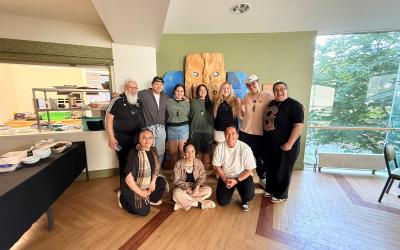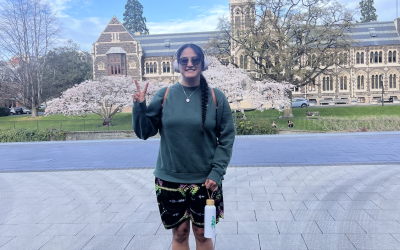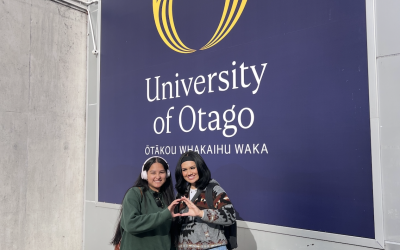In this program, you will enroll directly in classes at the University of Otago in Dunedin, New Zealand. The program is open to undergraduate and graduate students from any discipline for a semester or full academic year of study. You are able to embrace the full “kiwi” experience—most study abroad students live in flats managed by the University of Otago, which house both Kiwi and international students.
The University of Otago is New Zealand's oldest university, founded in 1869. It has earned an international reputation for the quality of its research and teaching. Teaching at Otago is closely related to scholarly research, with the result that most teaching is undertaken by academics at the forefront of relevant knowledge.
Otago's campus is a mixture of historic and modern buildings located in the center of Dunedin. The campus is a short walk from the city's central shopping and services. Otago students rate its campus lifestyle as one of its strongest attractions. The students live as a community immediately around the campus area in student Colleges of Residence or self-catering flats.
Dunedin is a coastal city situated in the southern part of the South Island of New Zealand. The South Island is well-known for outdoor activities and beautiful natural scenery, both in the summer and winter months. Dunedin also offers excellent cultural facilities including museums, art galleries, libraries, and craft centers.
The University of Otago offers a diverse faculty and a wide variety of courses that allow you to explore topics and cultures not commonly taught at the University of Oregon, particularly Maori studies. Renowned for its health sciences, the University of Otago prides itself on its research facilities and well-regarded psychology department.
Otago’s International Office provides specialist support for international students, welcoming you with a tailored orientation program and providing ongoing help and support throughout your time at the university. The University of Otago also has a wide range of student services available, including offices devoted to recreation and sports, disability services and academic accommodations, student government, student health, and learning support resources.
UO-Otago Indigenous Studies Program
The UO-Otago Indigenous Studies Exchange (ISE) program provides unique opportunities for select students from each campus to immerse themselves in Native American and Indigenous Studies (NAIS) academic and cultural activities in an international context. The Office of International Affairs will offer full scholarships* to two UO students to participate in the Fall semester (July – November) at the University of Otago. Note: this scholarship is temporarily suspended and will not be offered in 2026
Native American and Indigenous Studies (NAIS) Majors and Minors at the University of Oregon will have the opportunity to explore Indigenous sovereignty and Native American and Indigenous studies through the lens of the University of Otago’s Te Tumu School of Mäori, Pacific and Indigenous Studies programs, an experience designed to help students frame their understanding of Native American and Indigenous Studies topics in the United States within a broader international Indigenous Studies perspective. Similarly, University of Otago students will have the opportunity to live with, learn from, and work alongside Native American and Indigenous students, NAIS majors and minors, and tribal communities and nations in and around the University of Oregon. NAIS Majors and Minors at the University of Oregon who have completed two years of coursework may be eligible.
Scholarship Details
*The UO-Otago ISE Scholarship will cover the full cost of tuition, room and board, airfare, passport and visa application fees (if applicable), and additional fees associated with required course or extra-curricular activities (if applicable)
Note: The ISE scholarship is temporarily suspended and will not be offered in 2026.




